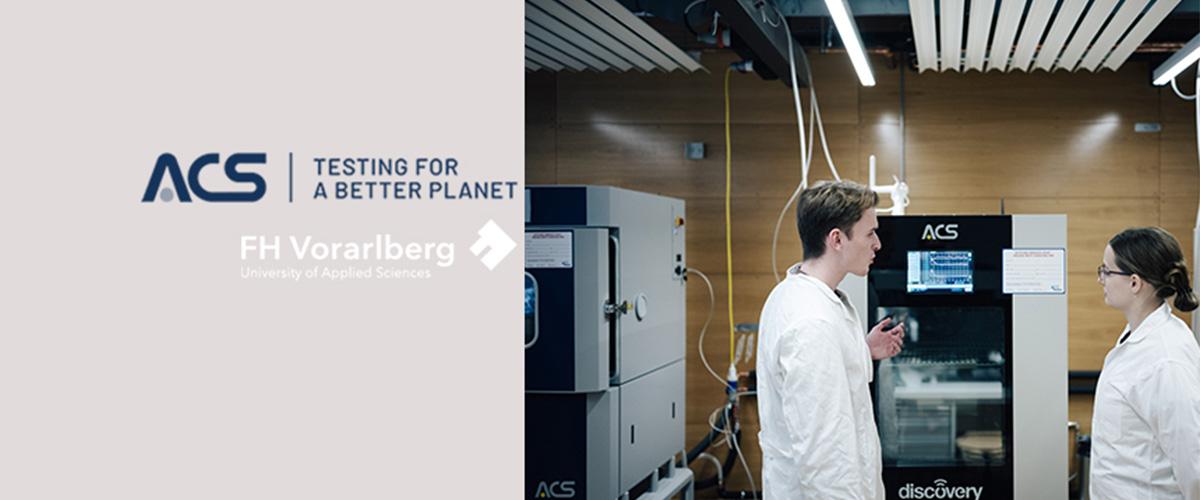Faster lifetime analyses by combining ACS environmental simulation chambers with advanced imaging techniques

For environmental simulation, the Vorarlberg University of Applied Sciences relies on devices from Angelantoni Test Technologies, to perform accelerated lifetime testing and other reliability tests.
To meet the growing demand of a sustainable and ever shorter product development cycle it is necessary to reliably predict the lifetime of materials under the influence of various environmental conditions.
In June 2021, a new laboratory was launched at the Energy Research Center of the Vorarlberg University of Applied Sciences to create new qualitative and quantitative methods for the reliable and fast determination of the reliability of products and materials in the coming years.
In a holistic approach, test objects are exposed to various loads through artificial aging and stress tests, the effects of which are analyzed in-situ and post-mortem using modern imaging methods. The combination of environmental simulation and stress test with high-resolution information on the microstructure and surface chemistry enables the development of improved physical degradation models that lead to improved models of reliability using statistical methods.
The knowledge gained in this way will help to extend the lifetime of existing products and promote the development of innovative and sustainable products and materials. To this end, it is planned to work closely with companies in the region as part of the research project.
The two DM340 C ES "stress screening" chambers of the Discovery My series meet the requirements of a T range from -70 to 180°C with a RH up to 98% and a temperature change rate of at least 5K/min. Their wide range of options together with the third smaller chamber DY110 C they are able to cover all the test requirements of the newly established laboratory. In particular, the spacious test rooms and the simple integration of their own sensors enable project staff to quickly and easily develop tailor-made solutions for individual test programs.
The research project was funded by the Austrian Research Promotion Agency FFG as part of the COIN Project program (Project no. 883971).